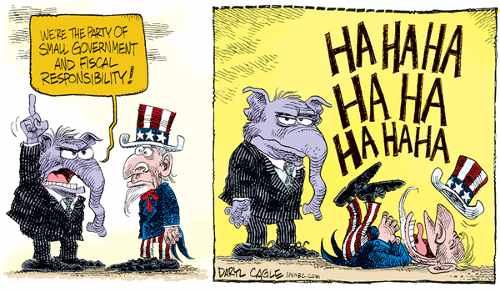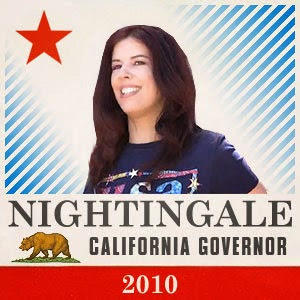GOP - A Party of Idiots
- The fools running the GOP refused to even put a proposition on the ballot to repeal the insane money-pit bullet train.
- If you don't actually believe in anything then how can you oppose Marxism?
By Jon Coupal;
The California GOP is rapidly approaching the edge of a black hole from which there is no escape. But rather than reverse course by appealing to the needs and aspirations of average Californians, the response by some Republicans in the Legislature is to rush forward to throw themselves into the abyss by supporting policies that punish the middle-class.
Only a quarter of California voters are registered Republicans, barely more than those declaring no party preference. In the Legislature, Republicans number less than a third of lawmakers in each house.
There was a time when even some Democrats in the Legislature supported a healthy economy, taxpayers’ rights and Proposition 13. If any still exist, they are hiding under their desks. Over the last two decades, that party has lurched to the left and those now in Sacramento are devoted to serving the interests of government (aka public sector unions), the ever-expanding entitlement class and the wealthy denizens of coastal enclaves.
For taxpayers, criticizing Democrats is almost too easy given how thoroughly they have abandoned the middle class. But Republicans have traditionally been held to a much higher standard when it comes to taxation and fiscal responsibility. The question now is the extent to which taxpayers can trust Republicans at all.
With Republican support, the California legislature passed several bills slamming California’s ever-shrinking middle class. First, there was perhaps one of the most unpopular bills in California history, Senate Bill 1, imposing $52 billion in permanent new gas taxes and user fees on California drivers. Next was the infamous “cap-and-trade” legislation, Assembly Bill 398. In a few short years, drivers could be paying a buck and a half a gallon just in taxes and climate fees when added to the already sky-high levies imposed by the state.
Last, but certainly not least, is Senate Bill 2, part of the California’s ineffective and counterproductive response to the housing shortage. The bill would impose a $75 to $225 “recording fee” on all real estate transactions and generate as much as $258 million annually. Only in California and Monty Python movies would a tax on real estate be considered a rational response to a housing shortage.
Let’s be clear. Those legislators who best defend taxpayers are still Republican. But unfortunately, those faithful few are being smeared by association with those who bend with the wind, succumb to the next big campaign contribution or promise of some “juice committee” appointment or lobbying gig. Note that the reverse is true as well: Some Republican legislators who stood firm for taxpayers were punished by having their committee assignments revoked or banished to the smallest office in the Capitol.
Average taxpayers understand how painful these tax hikes are. But they probably don’t understand how politically incompetent the Republican leadership was in getting them passed. Republican support for tax hikes allowed targeted Democrats in marginal districts (those where a Republican has a chance of winning) to vote against the tax hikes. These Democrats can now seize the mantle of fiscal responsibility even though everyone knows that, had their vote for the hikes been necessary for passage, they would have voted yes. Time and time again, Republican support of tax hikes allowed the “lifeboating” of Democrats in swing districts. To use a phrase by one party leader, this was “felony stupid.”
Taxpayer advocates take no joy in the slow immolation of the Republican Party.
The loss of any effective opposition from a minority party is a loss to all Californians. A strong democratic process relies on the competition of ideas. Moreover, one party rule has led to an extraordinary abuse of power in several areas including campaign rules, shutting down debate and jerry-rigging agencies and commissions in ways to crush political opposition. The loss of a vibrant Republican Party in California will accelerate the state’s metamorphosis into a Venezuela-like banana republic.
In order to have a chance against the power and money of the Democrats, Republicans need to distinguish themselves on critical matters of policy. Unlike social issues — as important as they may be — the fiscal issues of economical government, reasonable taxation and protection of Proposition 13 have been the rock to which Republicans have wisely clung as California’s political skies have turned from purple to blue. A return to these principles is a necessary first step for the GOP to repair its damaged reputation.
Jon Coupal is president of the Howard Jarvis Taxpayers Association.
Read More . . . .












